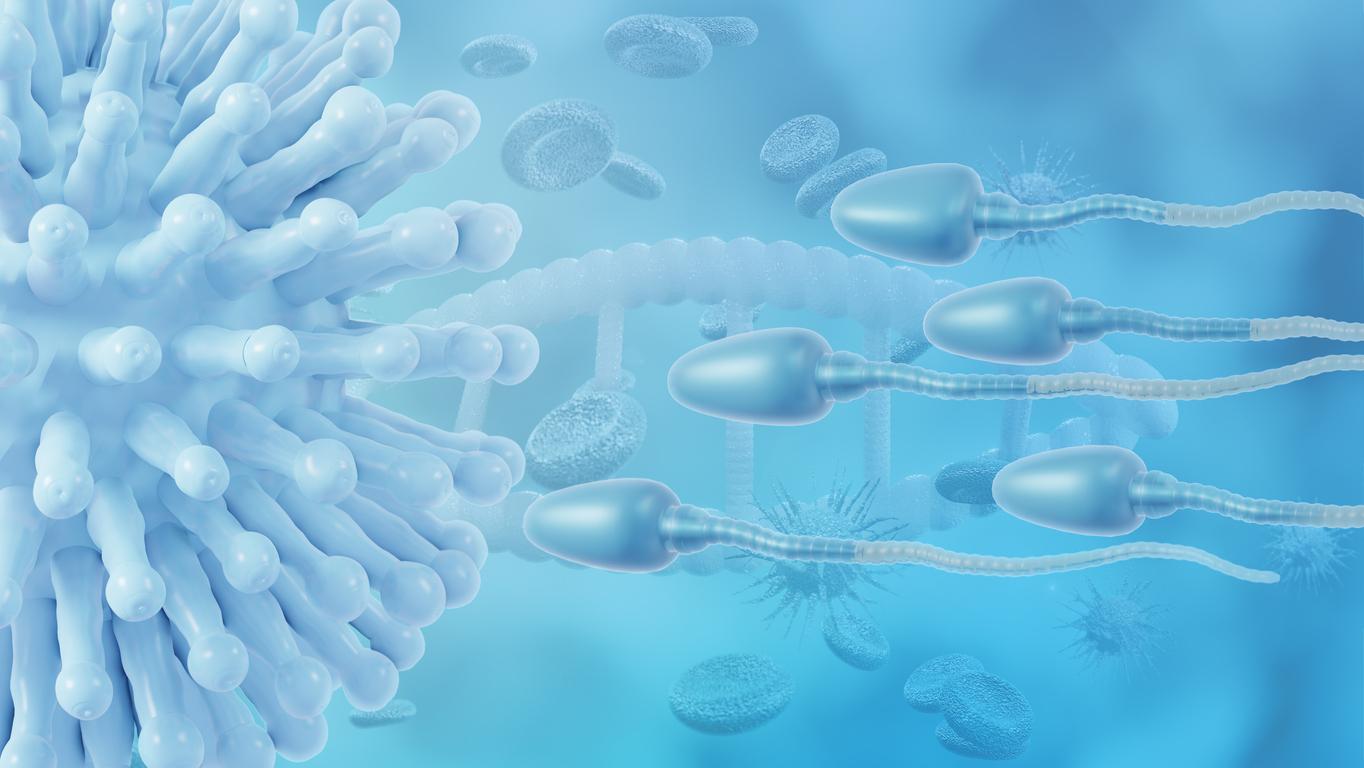Sperm quality of men with mild forms of Covid-19 shows a persistent decline, even three months after infection.

- Having been infected with SARS-CoV-2 impacts the quality of patients’ sperm.
- One hundred days after infection, there seemed to be no improvement in sperm quality and concentration, according to a new Spanish study.
- The lead author of the work suggests that inflammation and damage to the immune system caused by the virus could be to blame.
Since the appearance of Covid-19numerous studies have shown that men affected by SARS-CoV-2 subsequently have degraded sperm quality. Work by Spanish researchers reveals that the drop in sperm count persists for more than three months after infection, even after a mild form of the disease.
Sperm: a persistent decline in quality even after 100 days
For this study presented at the 39e annual meeting of the European Society for Human Reproductive Sciences and Embryology on June 26, researchers had recruited 45 men attending six fertility clinics in Spain between February 2020 and October 2022. All had had a confirmed diagnosis of mild Covid-19. The team retrieved semen quality data collected before the participants became ill as well as semen samples taken between 17 and 516 days after infection.
More than 100 days after Covid-19, analyzes revealed a statistically significant difference in several parameters of sperm quality. A decrease was observed in particular in the volume (20% decrease from 2.5 to 2 millilitres)concentration (26.5% decrease from 68 to 50 million per ml of ejaculate)sperm count (37.5% decrease from 160 to 100 million per milliliter of semen)the ability to move and swim forward (down 9.1%, i.e. from 49% to 45%) as well as the number of living spermatozoa (5% drop, from 80% to 76%).
“The continued effect of Covid-19 infection on sperm quality during this later period may be caused by permanent damage from the virus, even with mild infection. We believe doctors should be aware of the adverse effects of the SARS-CoV-2 virus on male fertility. It is particularly interesting that this decrease in sperm quality occurs in patients with mild COVID infection, which means that the virus can affect male fertility without men showing clinical symptoms of the disease.warns the lead author of the study Rocío Núñez-Calonge in a communicated.
Decline in fertility after covid: inflammation to blame?
While it is known that the SARS-CoV-2 virus can affect testes and sperm, the mechanism that results in the impact on sperm quality is still unknown. The study expert suggests that the inflammation and damage to the immune system seen in patients with long covid could be involved.
“The inflammatory process can destroy germ cells by infiltrating white blood cells involved in the immune system and reduce testosterone levels by affecting interstitial cells that produce the male hormone”she says. “It should be mentioned that the alteration of sperm parameters may not be due to a direct effect of the SARS-CoV-2 virus. There are likely additional factors that contribute to the long-term decrease in sperm parameters, but the identity of which is currently unknown. Additionally, we did not measure hormone levels in this study: intense changes in testosterone, a key player involved in male reproductive health, have previously been reported in male patients infected with the Covid-19″, adds the scientist.

















